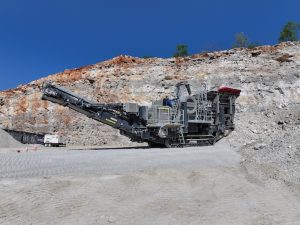Namibia’s gold mining sector faces scrutiny following a recent audit report by Auditor-General Junias Kandjeke, which reveals widespread regulatory non-compliance among some of the country’s top gold mining operations.
The audit, covering the financial years 2020/2021, 2021/2022, and 2022/2023, assessed the licensing and operational compliance of key players in Namibia’s gold mining industry—namely QKR Namibia Navachab Gold Mine, B2Gold Namibia, and Osino Gold Exploration and Mining. The report, submitted to the National Assembly, highlights several areas of concern related to licence renewals, ownership transparency, and local content requirements.
Only 7 out of 13 Licence Renewal Applications Met Requirements
According to the Auditor-General’s findings, only seven out of 13 applications for mining licence renewals submitted during the review period met the legal and regulatory requirements. Six mining entities exceeded the statutory seven-year licence limit without obtaining the necessary ministerial approval, a direct violation of Namibia’s Minerals (Prospecting and Mining) Act.
Additionally, these non-compliant companies failed to reduce their exploration areas upon renewal, a mandatory process designed to ensure efficient land use and equitable distribution of mineral rights.
Key Mining Operators Found Non-Compliant with Local Development Regulations
The audit focused heavily on compliance with Section 50(c) of the Minerals Act, which obliges mining companies to collaborate with industry stakeholders to develop skills and transfer technology to Namibian citizens. Both QKR Namibia Navachab Gold Mine and B2Gold Namibia were found to be in breach of this requirement for at least two of the audited financial years.
QKR Namibia, in particular, failed to comply with Section 50(c) during the 2020/2021 and 2021/2022 financial years. Although it met compliance standards in 2022/2023, its historical performance raised concerns about its commitment to long-term local capacity development.
Ownership Transparency Remains a Concern in Namibia’s Mining Sector
The audit also flagged significant gaps in beneficial ownership disclosure among the gold mining companies. QKR Namibia Navachab Gold Mine’s corporate structure, as submitted, indicates 92.5% foreign ownership and only 7.5% Namibian shareholding. However, the audit found that no detailed information on the beneficial owners of the 92.5% stake was provided.
Moreover, QKR had not updated its poverty eradication strategy since 2016, suggesting a lack of proactive engagement in social impact initiatives.
B2Gold Namibia also showed inconsistencies. While official company records suggest 90% Mauritian and 10% Namibian ownership, B2Gold itself stated that it is 90% Canadian-owned. The audit found no audit evidence to verify the company’s claimed beneficial ownership, raising further questions about transparency and corporate governance.
Osino Gold Exploration Cited for Licensing Delays and Unclear Shareholding Benefits
Osino Gold Exploration and Mining, currently in its exploration phase, was also found to be in breach of compliance regulations. The company delayed its acceptance of additional licence conditions beyond the legally mandated one-month notice period and failed to obtain ministerial approval for the delay.
At the time of the audit, Osino’s proposed Namibian shareholding structure was still pending government approval. The report raised concerns over how the holders of the 10% Namibian equity stake in the new Osino entity would derive fair and equitable benefits compared to the remaining 90% controlled by foreign entities.
Lack of Documentation on Local Participation, R&D, and Beneficiation
The audit further criticized the Ministry of Mines and Energy for not providing adequate supporting documentation regarding policies on local participation, beneficiation, and research and development in the mining sector. These policy areas are considered critical for promoting inclusive economic growth and ensuring that Namibia derives long-term benefits from its mineral wealth.
Only B2Gold Namibia was found to be fully compliant with capacity-building requirements across all three financial years reviewed. QKR Namibia met the criteria only for 2022/2023, while Osino was not assessed in this area due to its exploration status.
Key Recommendations for Regulatory Reform and Oversight
The Auditor-General has called for the Ministry of Mines and Energy to strengthen regulatory oversight and ensure full compliance with licence renewal procedures, including:
- Enforcing the seven-year licence term limit and ensuring timely applications for ministerial approval.
- Mandating the reduction of exploration areas upon licence renewal.
- Maintaining up-to-date records of mining companies’ ownership structures and local content strategies.
- Providing detailed documentation to support audit responses.
- Enforcing policies on local beneficiation, capacity-building, and technology transfer.
Implications for the Future of Namibia’s Mining Sector
These audit findings arrive at a time when Namibia is positioning itself as a key destination for foreign direct investment in mining, especially in gold and critical minerals. However, ongoing compliance issues, ownership transparency gaps, and delays in local equity approvals may undermine investor confidence and public trust.
Ensuring that mining companies operate transparently and align with national development goals is essential for building a sustainable, inclusive, and resilient mining industry in Namibia. The Auditor-General’s report serves as a wake-up call for both regulators and operators to uphold the legal, social, and ethical standards required in the sector.







